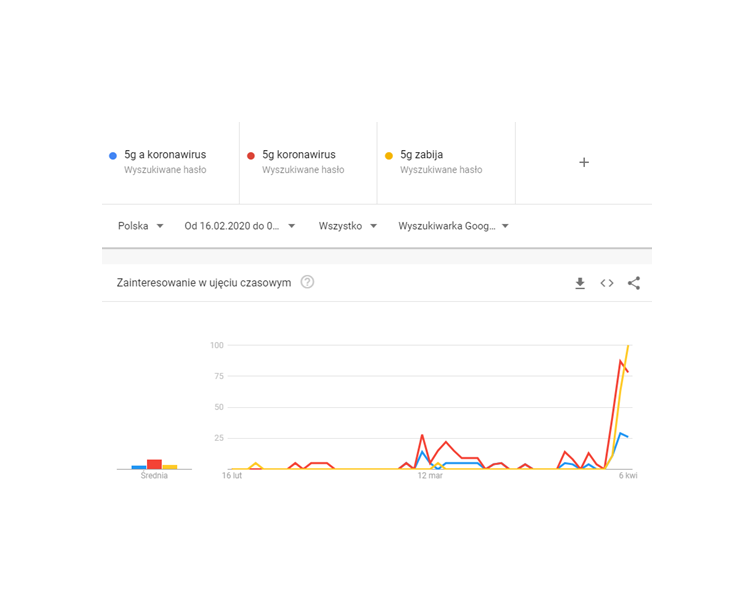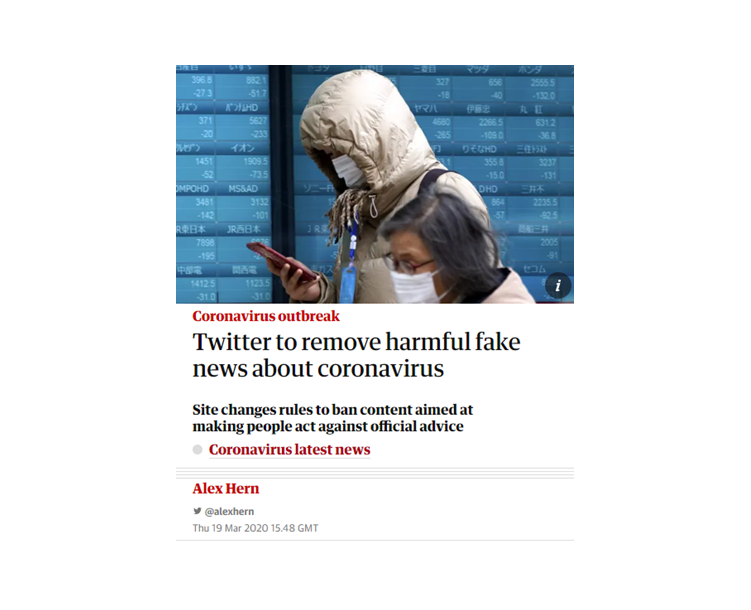In addition to significant health problems and business challenges, the coronavirus has brought (or caused) one more severe threat – misinformation
For some people, fear and uncertainty are excellent grounds for spreading doubts, spreading lies and thus achieving financial or political benefits.
The problem is so significant that EUvsDisinfo (a project set up by the East StratCom Task Force operating at the European External Action Service) has published a special report collecting narratives appearing in media in recent weeks. EEAS mainly deals with disinformation flowing from beyond our eastern border, and these are primarily political and economic topics designed to destabilize social moods. To date, EUvsDisinfo has accounted for almost 300 cases of such action.

Another topic that is attempting to connect to coronavirus in some circles is the 5G network
A few days ago, a video from one of the British cities was circulating on Twitter, in which a woman accuses employees of a telecommunications company that they are involved in a mass murder because they are building infrastructure that is supposed to kill people. And the restrictions on movement are for people to sit at home and not be aware of what is happening. You could laugh at it if it wasn’t for the fact that such misinformation could lead to a tragedy. Last Saturday telecommunications poles were set on fire in several cities in the UK, making communication difficult in such a difficult time. Polish society is not immune to such opinions – the number of searches for the links between 5G and coronavirus is also increasing in our country.

Social media is the perfect place to spread false information
Fortunately, the largest platforms see the seriousness of the threat, introduce stricter content control and quick response. Facebook controls what content shows up when users search for pandemic content, and on the WhatsApp messenger limits the ability to forward content and introduces the ability to verify frequently shared information and materials. Twitter expands its definition of harmful content to include posts that deny a pandemic, negate precautionary measures introduced by governments, promote miracle cures, etc. – all such content is to be removed from the platform and accounts suspended.
The activities of tech giants may limit the spread of false information, but for now, they are not able to eliminate it.
The ease with which it is now possible to spread disinformation is a substantial social challenge and is also an opportunity for reliable sources of information to increase their influence. We should support reliable media from the sense of civic duty – by buying newspapers/magazines and, on the other hand, planning advertising campaigns in these titles.
Source: euvsdisinfo.eu, WSJ, Reuters, Guardian, Google Trends

